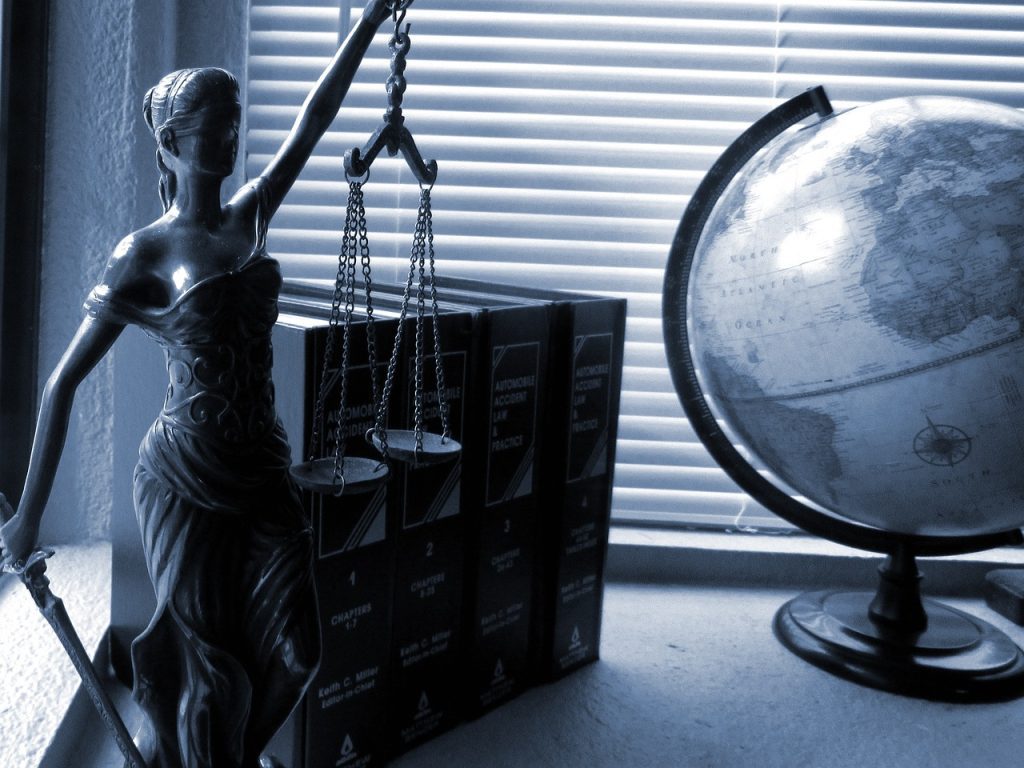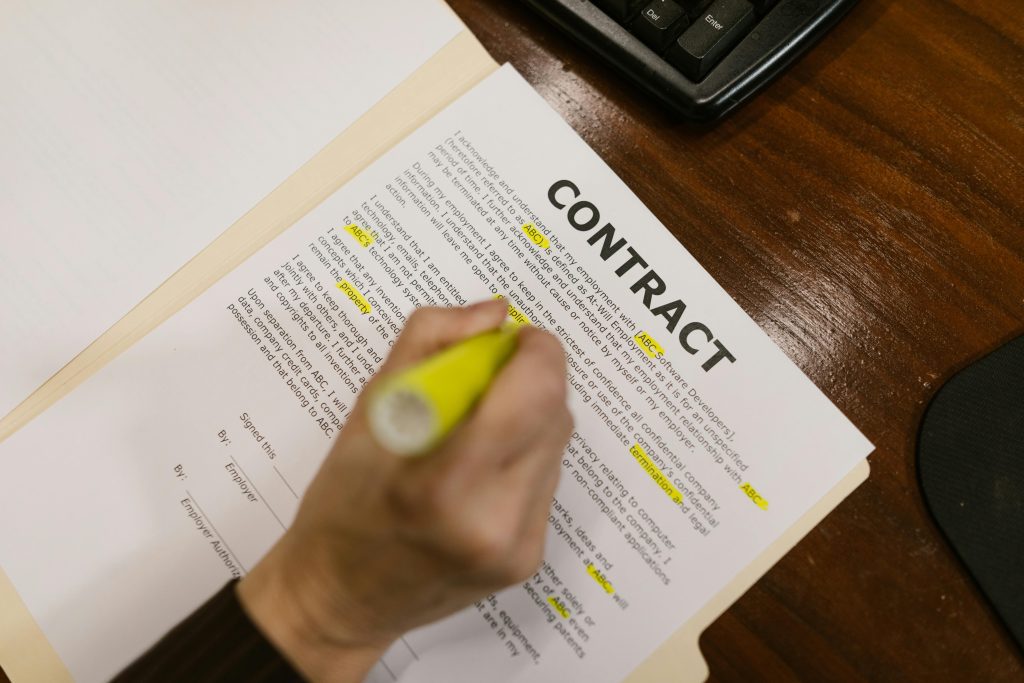
Translating a document from one language to another isn’t as easy as people think. It requires command over the two languages and a capacity to make correct word choices. Even simple documents will begin to paint a different picture if translated inaccurately. When Newton’s first law of motion can be mistranslated, anything is subject to subpar paraphrasing attempts.
This debate takes us to translating documents that are legal in nature. You may wonder what the idea of legal paperwork translation even means. How to translate legal documents and who can translate legal documents? We know that legal documents are complex and require attention to detail. Even the slightest mistake in this sort of translation has far-reaching consequences.
So, let’s explore the complex landscape of legal document translation and answer some fundamental questions regarding it. Let’s start with learning the concept of this sort of translation.

What is a Legal Translation? Explaining the Concept
Legal translation seemingly appears the same as standard translation. However, legal translation is quite different from traditional translation because it requires precision and extreme care. Legal documents compose the backbone of a country’s legal system.
These documents facilitate financial transactions, agreements, and even national economies. A legal document can be anything from contracts, agreements, and patents. But what does legal translation entail in a real-life scenario?
You may think that legal translation merely entails replacing already existing words in one language with the same or equivalent words in another language. Well, legal translation doesn’t work like that! A legal translation focuses on capturing the intent and validity of the source text to ensure that it’s legally sound and conveys the same message in the target language. The translator has to maintain the validity as well as the accuracy of the target document, as apparent from these examples:

- First Example: In 2017, South Korea’s Defence Acquisition Program Administration entered into a contract with US-based defense companies but mistranslated a key clause. It cost them some 20 billion won as a fine for misinterpreting these crucial clauses. If they had hired an expert translator, the key clause might have been translated more accurately, potentially avoiding later complications due to the nuances of US and Korean jurisdictions.
- Second Example: In 2022, the Japanese government lost a compensation lawsuit filed by victims who were comfort women. The government tried refusing the receipt of docs for asset seizure on the grounds that the translation was incorrect. This simple mistranslation didn’t only lead to financial issues but also caused national embarrassment.
You may wonder which documents are legal in nature. In the next section, you’ll see a list of key documents that need translation. Learning this difference will help you determine which documents require working by translators with legal aptitude.

Types of Legal Documents that May Require Translation
Different documents require legal translation. Don’t just assume that only documents involving business transactions are in need of a translation. It’s a misconception that only a document of strict legal as well as contractual nature comes under the umbrella term of legal document translating.
Here’s a list of legal documents that need translation in certain circumstances:
- Intellectual property documents
- Business agreements and contracts
- Birth, marriage, and/or divorce certificates
- International business/financial documents
- Wills, Trusts, Powers of Attorney, and other documents
- Affidavits, depositions, and other court-related documents
- Visas, passports, ID card translation and other immigration-related documents
Challenges in Translating Legal Documents
You may wonder what types of challenges arise in legal translations. For instance, Afghan asylum seekers who applied for shelter in the US after the Taliban takeover in Kabul faced myriads of challenges when a machine-translated app mistranslated their documents from Dari to English. This incident alone reveals the core reason why you can’t trust AI when it comes to legal translations. Also:

- Legal translations have very vague and ambiguous language, which can be difficult to translate when you’re using AI
- Legal paperwork usually has “wooden language” so there’s no room for flowery words in the translated document.
- A legal document has sensitive information, and working with credible translators will ascertain confidentiality.
- Legal translations often have tight deadlines that can be met only by credible translators.
- Not all legal concepts have straightforward equivalents in another language.
The ever-increasing complexity of legal matters has made legal translators critical resources for navigating international transactions.
Can anyone translate legal documents? We’ll answer this question in the next section.
What Makes Legal Translators Different?
Faulty translation doesn’t only cause legal repercussions for the companies involved but also harms the people to whom these laws are applicable. Consider the example of legal translators who mistranslated documents on kids’ special education, holding back students with special needs from pursuing education in person.
These are the mistakes you won’t expect from credible translators. So, here are a few reasons why legal translators are different from average translators:

Linguistic Skills
Legal translations require fluency in both the source and target languages, but that’s just the first step. To ensure accuracy, the translator must also understand legal terminology and the cultural nuances of both legal systems.
For example, if you want to translate an English document into Arabic, you must reach out to a translator who is proficient in both languages. This person needs to have a good understanding of grammar and vocabulary.
Legal Know-how
This person needs to have a good grasp of legal concepts and terminologies. They must understand lots of different legal systems. You should hire a translator who knows the legal jargon and terminologies used in the two jurisdictions.
Cultural Context
Even though legal translations involve the use of “wooden language,” cultural context is still important. You need a translator who can deliver the same concept in another language. Cultural sensitivity is very important to ensure the translated document delivers the intended meaning.
Information Accuracy
When it comes to legal translation, you need a translator who has an eye for attention. They must not ignore any mistakes or neglect the importance of data accuracy. That’s why you should hire translators with enough experience in this niche.

Responsible Work
A legal document will have lots of confidential information. That’s why you need someone who adheres to a strict moral code. Ethical standards must be ensured here. The translator needs to keep your data confidential and doesn’t reveal anything to third-party sources.
Legal experts today are using tech tools to accelerate translations. The growing role of technology in legal translation proves that even legal translators can benefit from relying on AI to get better results. However, AI isn’t able to fully replace these professionals yet. That’s because these translators employ several best practices to make the translated legal document beyond reproach.
Legal Document Translation Best Practices
Imagine the public outcry when it was revealed that police troopers in the state of New York were giving Spanish-speaking drivers inaccurately translated documents about what would happen if they refused a blood alcohol test. The entire pool of evidence collected between 2014 and 2018 involving drunk drivers who spoke Spanish was thrown away because it was tainted.
This single example shows why troopers in the NYC should’ve had hired experts to translate legal documents from English to Spanish.

- Learn the legal jargon and terminologies of both jurisdictions
- Be familiar with the cultural differences when translating legal documents
- Use certain terminologies consistently throughout the document to maintain consistency
- Get the documented file validated by a qualified attorney who actually speaks the language in question
- Review the document after finishing it and proofread; translation agencies also perform “back translation” to ensure the accuracy of the translated text
These best practices ensure your legal documents are translated accurately. No machine tool can provide you with the same quality in legal translation because they don’t follow these best practices. This is precisely why you should hire legal translators to get the job done right the first time.
Conclusion
This blog explains the importance of legal document translation and the challenges of doing it right. You learned how complex translating legal paperwork can be and what makes legal translators fit to take a jab at this task.
Also, you learned why it’s never a good idea to handle this sort of translation on your own. A credible agency like TranslateSwift should handle all translations of a legal nature.

You can simply order legal translations online and get the required document rewritten in the language of your choosing with the proper legal context. One doesn’t have to be a lawyer to paraphrase legal docs in another dialect. But it’s safe to hire translators with legal expertise to do this job.
FAQs – Translating Legal Documents
How do you officially translate a legal document?
You should look for certified translators to translate a legal document officially. Credible translators will issue you a certificate of accuracy to vouch for the translated document’s correctness. You may also get that document notarized to add an extra layer of validity.
How is legal translation different from normal translation?
Legal translations contain a different type of content and require translators with legal expertise. These documents also contain legal jargon and terminologies. It makes them quite unique from the documents translated by standard translators.
What does a legal translation entail?
Legal translations mean sworn/official translations to be presented in administrative capacities. A simple example would be that of diplomas, birth/marriage certificates, business contracts, and others.











